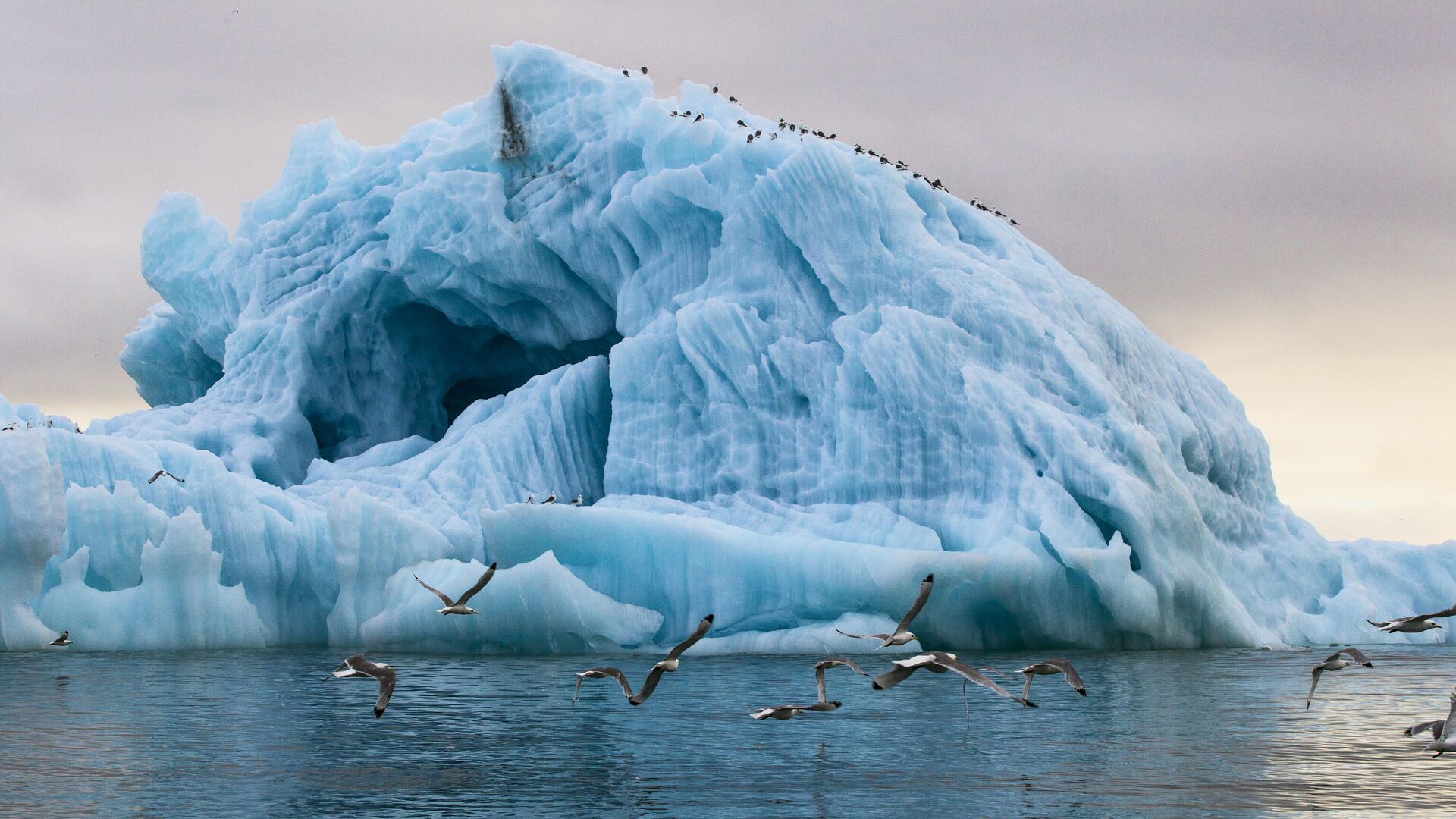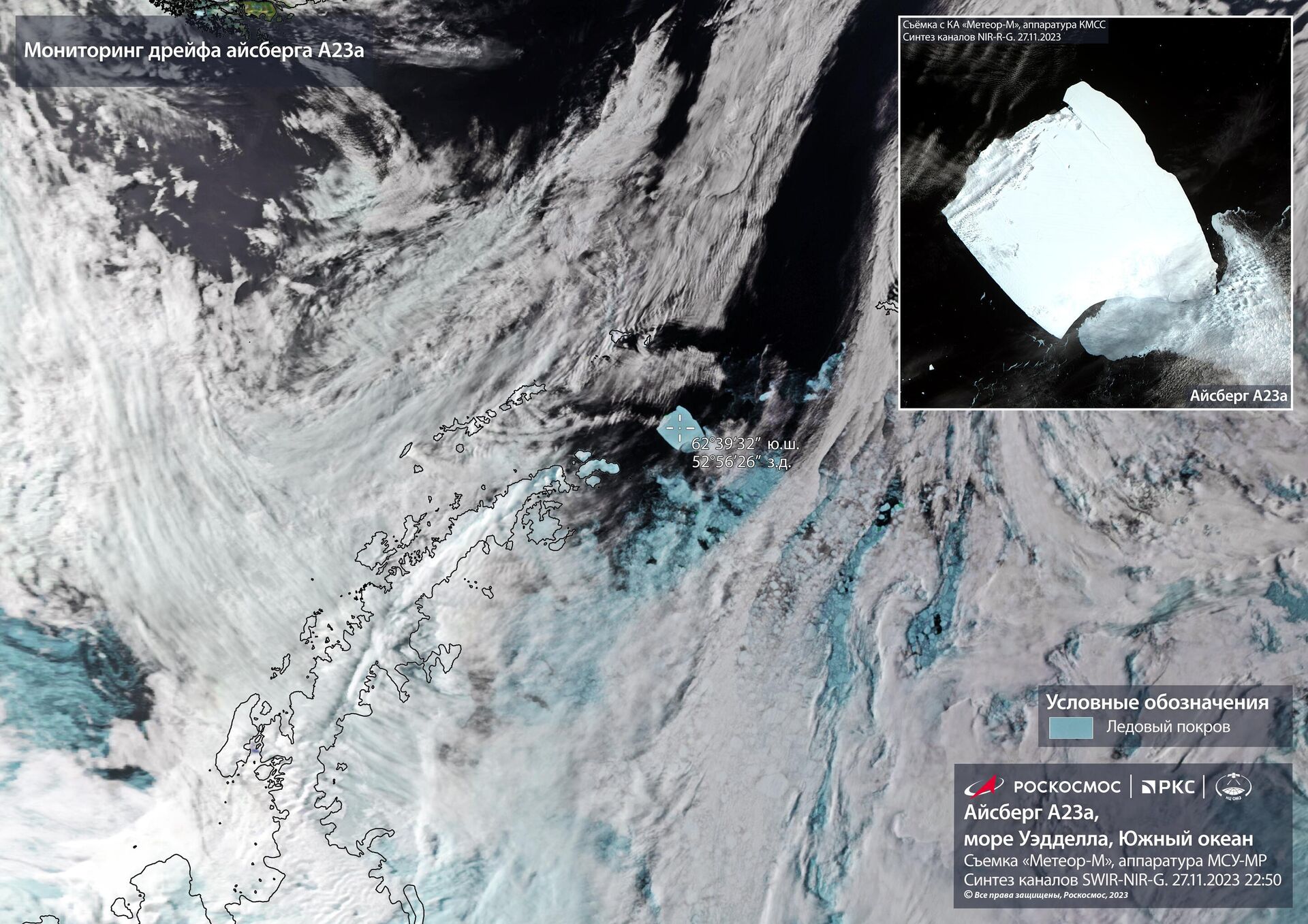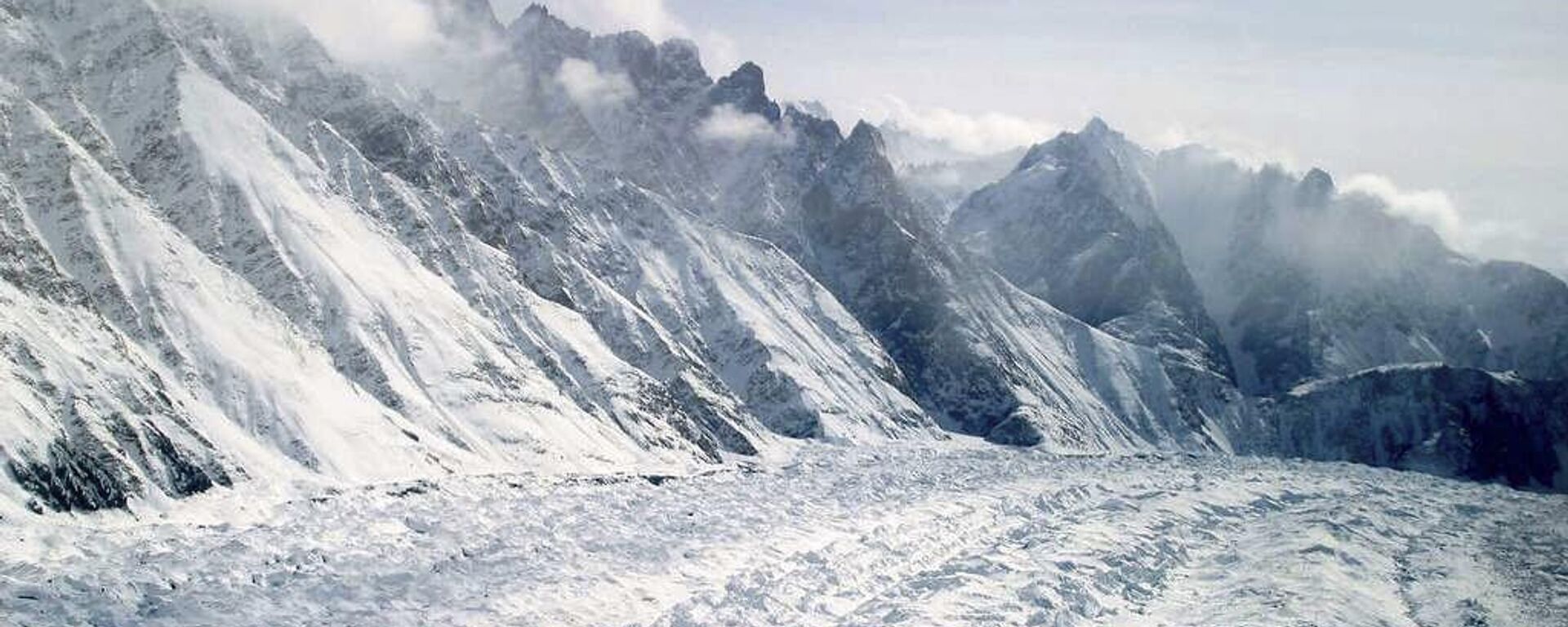https://sputniknews.in/20231129/sea-levels-will-rise-5m-as-antarctic-iceberg-melts-climatologist--5636857.html
Sea Levels Will Rise 5M As Antarctic Iceberg Melts: Climatologist
Sea Levels Will Rise 5M As Antarctic Iceberg Melts: Climatologist
Sputnik India
Climatologist Alexey Kokorin tells Sputnik News that the melting of icebergs in the western part of Antarctica will have an adverse impact as it will raise the sea levels in the World Ocean.
2023-11-29T19:25+0530
2023-11-29T19:25+0530
2023-11-29T19:25+0530
india
climate change
science & tech
antarctica
european union (eu)
paris
us
global warming
melting glaciers
https://cdn1.img.sputniknews.in/img/07e7/0b/1d/5638617_0:72:3072:1800_1920x0_80_0_0_5bafd477baf0e62bd10747cdc2abea17.jpg
The potential five-metre rise in ocean levels within the next century has raised urgent concerns, climatologist Alexey Kokorin told Sputnik.This comes after scientists from the Arctic and Antarctic Research Institute (AARI) announced that the world's largest iceberg, A23a, has reached the clear waters of the Southern Ocean and is projected to reach the Scotia Sea in the next month.However, under the influence of wind, waves, and warm ocean waters, A23a may melt and cease to exist.The potential increase in sea levels poses significant challenges for coastal regions worldwide.Kokorin suggested that although the melting of Greenland's glaciers and thermal expansion of water also contribute to rising sea levels, the melting of the western shelf of Antarctica has the greatest impact which is extremely difficult to predict.Kokorin insisted that to fight rising sea levels, one needs to tackle global warming and achieve carbon neutrality.Carbon neutrality is one of the goals proclaimed by the Paris Agreement on climate change. The US and EU countries plan to achieve carbon neutrality by 2050, Russia and China by 2060, India by 2070.
https://sputniknews.in/20230621/himalayan-glaciers-are-melting-faster-than-ever-before-scientists-warn-2590863.html
india
antarctica
paris
us
Sputnik India
feedback.hindi@sputniknews.com
+74956456601
MIA „Rossiya Segodnya“
2023
Sputnik India
feedback.hindi@sputniknews.com
+74956456601
MIA „Rossiya Segodnya“
News
en_IN
Sputnik India
feedback.hindi@sputniknews.com
+74956456601
MIA „Rossiya Segodnya“
Sputnik India
feedback.hindi@sputniknews.com
+74956456601
MIA „Rossiya Segodnya“
melting of icebergs, western antarctica, sea level, world ocean, antarctic iceberg melting, prediction, rise in ocean level, arctic and antarctic research institute (aari), world's largest iceberg, a23a, southern ocean, scotia sea, a23a may cease to exist, destruction of glaciers, crucial factor, growth of the ocean, greenland glaciers, thermal expansion of water, rising sea levels, global warming, carbon neutrality, climatologist alexey kokorin,
melting of icebergs, western antarctica, sea level, world ocean, antarctic iceberg melting, prediction, rise in ocean level, arctic and antarctic research institute (aari), world's largest iceberg, a23a, southern ocean, scotia sea, a23a may cease to exist, destruction of glaciers, crucial factor, growth of the ocean, greenland glaciers, thermal expansion of water, rising sea levels, global warming, carbon neutrality, climatologist alexey kokorin,
Sea Levels Will Rise 5M As Antarctic Iceberg Melts: Climatologist
Climatologists warn that the melting of icebergs in the western part of Antarctica will have an adverse impact as it will raise sea levels in the World Ocean.
The potential five-metre rise in ocean levels within the next century has raised urgent concerns, climatologist Alexey Kokorin told Sputnik.
This comes after scientists from the Arctic and Antarctic Research Institute (AARI) announced that the world's largest iceberg, A23a, has reached the clear waters of the Southern Ocean and is projected to reach the Scotia Sea in the next month.
However, under the influence of wind, waves, and warm ocean waters, A23a may melt and cease to exist.
Though, as Kokorin claims, the rising sea levels caused by A23a melting will be minimal, he emphasised that the destruction of glaciers in the western part of Antarctica is a crucial factor contributing to the overall rise of the ocean.
The potential increase in sea levels poses significant challenges for coastal regions worldwide.
"The formation of icebergs will intensify. The icebergs will not necessarily be as big, but about five small icebergs may appear,” Kokorin said.
Kokorin suggested that although the melting of Greenland's glaciers and thermal expansion of water also contribute to rising sea levels, the melting of the western shelf of Antarctica has the greatest impact which is extremely difficult to predict.
Kokorin insisted that to fight rising sea levels, one needs to tackle global warming and achieve
carbon neutrality.
“It would still be good if we all stopped global warming by achieving carbon neutrality, so that the ocean rose by 1.5 to 2 metres, and that would have stopped everything,” the climatologist said.
Carbon neutrality is one of the goals proclaimed by the Paris Agreement on climate change. The US and EU countries plan to achieve carbon neutrality by 2050, Russia and China by 2060, India by 2070.



